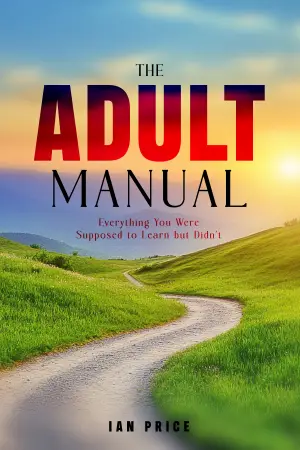I recently finished reading “No Bad Parts” by Dr. Richard Schwartz, and it was a fascinating exploration of the complexities of our minds. Psychology is a topic I am deeply invested in, and the premise of the book immediately drew my attention. The concept that we are not just one single entity but rather a mosaic of “parts” intrigued me, especially with the promise of how this understanding could potentially transform our approach to mental wellness.
Dr. Schwartz’s Internal Family Systems (IFS) model proposes that these parts — which include our inner critic, saboteurs, and even our more compassionate selves — should be honored rather than suppressed. This revolutionary idea of an “internal family” resonated with me, particularly because the book emphasizes that every part has worth and a role in our mental wellness. I found the discussions about how our parts often carry burdens from past traumas or cultural beliefs especially poignant. The way he writes about unburdening these parts to discover their essential goodness aligns with the healing journey that many seek.
The book is sprinkled with practical exercises, such as mapping your parts and identifying triggers. I appreciated this because it allowed me to actively engage with the material rather than just passively absorb information. These exercises provide a hands-on approach that I think many readers will find valuable.
However, I must mention a few drawbacks based on my own experience and common sentiments I’ve encountered from others. Firstly, some readers may find the initial chapters a bit dense and challenging to navigate, especially those unfamiliar with psychological jargon. While I found the information enriching, I can see how it might overwhelm someone who is less seasoned in the subject. Additionally, some may prefer a more structured outline, as the flow could feel less linear at times.
On the positive side, many readers have praised the warmth and accessibility of Dr. Schwartz’s writing style. I wholeheartedly agree; his compassionate tone made the material approachable and engaging. He has a gift for making complex ideas understandable, which is crucial when discussing mental health topics. This aspect also contributes to a supportive atmosphere throughout the book, almost as if Dr. Schwartz is sitting with you as a friendly guide on your introspective journey.
Furthermore, the book challenges the outdated “mono-mind” theory, making a compelling case for how embracing our multifaceted selves can foster healing not just for individuals, but for communities and even the planet. This vision of collective wellness is inspiring and gives readers a sense of purpose beyond their personal growth.
In conclusion, “No Bad Parts” met and exceeded my expectations in several ways. It provided me with a profound new lens through which to view my inner world. The combination of theory, practical exercises, and compassionate encouragement makes it a valuable read for anyone interested in personal growth and mental wellness. While it may have a few moments of weightiness that could deter some readers, the overall message is one of love, understanding, and healing — and I wholeheartedly recommend it to anyone looking to explore their inner landscapes. If you’re ready to embrace all the parts of yourself, this book just might be the key to unlocking a deeper sense of self.








